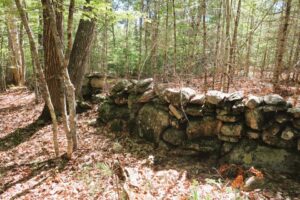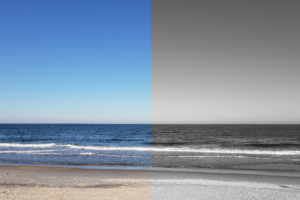Eco-Anxiety
Eco-anxiety is the anxiety that surfaces when thinking about that state of planet; floods, hurricanes, wildfires, the glaciers melting, etc. If doesn’t matter if the disaster is man-made or an extreme natural weather cycle, if it has to do with changes in the environment, it can cause anxiety.
Not a big deal, you say? Think again. Many people are concerned. According to Google, in a response to a request from TIME magazine, reported searches worldwide relating to “climate anxiety” or “eco-anxiety” increased by 4,590% from 2018 to 2023. The two most commonly Googled questions were “What is eco anxiety?” and “How to deal with climate anxiety?”
https://time.com/6338759/climate-change-anxiety-google-search-trend/
Environmental Effects of Climate Change
The World Wildlife Federation, AKA “WWF”, is one of the leaders in the fight to elevate climate change issues to the forefront. The concerns of members of the WWF are that with the worsening effects of climate change, there is negative effect on wildlife throughout the world. https://www.worldwildlife.org/threats/effects-of-climate-change
In addition to the effect on animals, according to the WWF, climate change causes:
- More frequent and intense drought
- Storms
- Heat waves
- Rising sea levels
- Melting glaciers and
- Warming oceans
Personal Effects of Eco-Anxiety
People who identify as having eco-anxiety report both grieving for what has already been lost and fearing for the losses to come. They report a roller coaster of feelings including:
- Anger and depression
- Existential dread
- Fatalistic thinking
- Frustration
- Powerlessness
- Grief and loss
- Guilt and shame
- Intrusive or obsessive thoughts about the condition of the earth
- Helplessness and hopelessness
The Influence of the Media
The media has a clear responsibility to accurately report the impact of global warming on the earth. In the fast-paced, 24-hour news cycle world of today, who is part of the trusted media?
Who can report on climate change in a nonbiased, unopinionated manner? There are crickets in the room. No one can answer that question.
No news source seems to be able to be nonbiased and unopinionated. Who are the news sources most people listen to? Some seem generational, but there appear to be four major sources of the media reporting on climate change:
- Radio: It is inexpensive and easily accessible. Usually listened to by an older generation.
- TV: the 24-hour news cycle and numerous channels devoted to the earth, for example, Animal Planet, Discovery Channel and the National Geographic Channel.
- Print media: Newspapers, magazines and opinion editorials by left leaning or right leaning pundits attempt to sway your opinion, not inform.
- Social media: Google, Facebook, X formerly Twitter, Tik Tok, WhatsApp, most connecting with a younger generation.
Self-Regret and Incrimination
There is a suggestion that each person on earth contributes in a negative way to climate change. Based on news reports, it is easy to judge yourself harshly for your lifestyle practices that have been touted as contributing to climate change, for example:
- Using plastic and Styrofoam
- Running your air conditioner or heater
- Eating a meat-heavy diet
- Not recycling cans, glass and plastic
But how accurate is this, really?
The Good Grief Network (AKA “GGN”)
If your intrusive thoughts about climate change are keeping you up at night, perhaps you could become involved with the Good Grief Network (GGN). It is a peer support network for processing and integrating the uncertainty and grief that the climate can bring about for some. GGN is based on the 10-step Alcoholics Anonymous format. Participants move through a program in which key topics are processed in a supportive setting.
Therapeutic Support
Eco-anxiety isn’t an identified mental health diagnosis, though many mental health professionals agree that for many people, eco-anxiety can have a heavy emotional impact. Sometimes you just need to express your climate feelings with other people who understand what you are experiencing. If you find yourself feeling depressed, anxious, or overwhelmed by climate change, it might be a great time to seek out a climate-aware therapist.
Where some therapists might pathologize or dismiss eco-distress, climate-aware therapists understand it is a natural reaction to what is changing in the climate. If you are struggling with eco-anxiety, therapy may help.
Eco-therapists can provide a safe space to:
- Develop coping skills to manage guilt and shame
- Obtain tips for managing eco-anxiety and depression
- Provide support for eco-anxiety in a nurturing environment
Examples of Rebounding
There has been a lot said about how climate change is damaging the world. Some estimates include the end of the world as we know it in just a few years. A lot of fear and anxiety has resulted from these dire predictions.
Perhaps it would be uplifting to end this blog on a brighter, less dire, note. Climate change and other factors pertaining to human interactions, whooping cranes and peregrine falcons were close to extinction. Through heroic efforts, these species are rebounding.
Is there still time to save the world? Who knows. But there is hope, just look at the success stories of the whooping cranes and the peregrine falcons.
Whooping Cranes
The 1973 the Endangered Species Act (“ESA”) was signed into law. Whooping cranes were among the first species put on the list. In 1973, there were just under 50 whooping cranes left in the world. Due to climate change and other factors, their species was very, very close to extinction. The ESA protected the bird’s habitat throughout the country. https://www.fws.gov/story/2023-09/flight-survive Today there are more than 600 nesting pairs.
On a personal note, I have had the privilege of seeing at least 30 whooping cranes, including juveniles, in the wild, in their natural habitat in the Aransas National Wildlife Refuge near Rockport, Texas. They are thriving. Climate change may have affected the whooping cranes, but they are coming back!
Peregrine Falcons
Climate change, contaminants, habitat loss, lead poisoning and concentrations of pesticides in their prey (their food source) caused widespread failure of the peregrine falcon to reproduce during the 1940s to the 1970s. The species had all but disappeared from their former breeding areas.
Due to the heroic efforts of the Peregrine Falcon Fund at the World Center for Birds of Prey https://peregrinefund.org and many other organizations and individuals, in 1999 the peregrine falcon was removed from the Endangered Species list.
On a personal note, I have had the privilege of seeing peregrine falcons live in captivity at the World Center for Birds of Prey outside of Boise, Idaho. They take in peregrine falcons that have been injured and would not be able to survive in the wild.
Relationships Relearned: Learn. Unlearn. Relearn
To be in a healthy and successful relationship, what you learned in childhood about relationships may need to be unlearned and relearned in a different way as an adult. While this process is about relationships, it can also apply to your beliefs on a subject, for example, climate change.
As a child, you probably learned your views about climate change from your parents, your peers or the media. What you learned was all from their perspective and may or may not have been accurate. However, you carry those views into adulthood.
Not everything you have heard, read or believed from childhood is accurate. At some point, you may even need to unlearn what you believed and replace it with current knowledge or information. For example, you may have to reassess what you believed about bird species moving toward extinction.
In adulthood you may have new or modified beliefs about climate change because you have relearned information about climate change. Because you have been open minded and have done your research, you are able to look at climate change in a different way.
Take Aways
Challenges can rarely be solved when two people view the challenge differently, for example, is it the person or the problem that needs attention? Just checking in with the other person and identifying their perspective (person vs. problem) can go a long way to a successful resolution. Literally ask, “Are we both focusing on the same thing, the person or the problem?”
Eco-anxiety is increasing as a concern. There are professionals who can provide you with support and help you identify coping skills for your eco-anxiety. You are not alone.
BTW: Rebecca, if you are reading this blog, thank you for expanding my awareness and knowledge of the wonderful world of whooping cranes!
With warmest regards,
Thank you so much for reading this blog. If you enjoyed the content, please check out other blogs at:
https://relationshipsrelearned.com/my-blog/
https://rvingnomads.com/blog/
You can view my books on my Amazon Authors Page or go to the books tab at the top of this page
To be notified of future posts, please enter your email address and click on the Subscribe button.
AI has not been used to create any content for my website, articles, blogs or books. All material is original unless otherwise noted.
All photos and graphics within my website and blogs were taken or created by David Harrington or
Kathryn Maietta.











